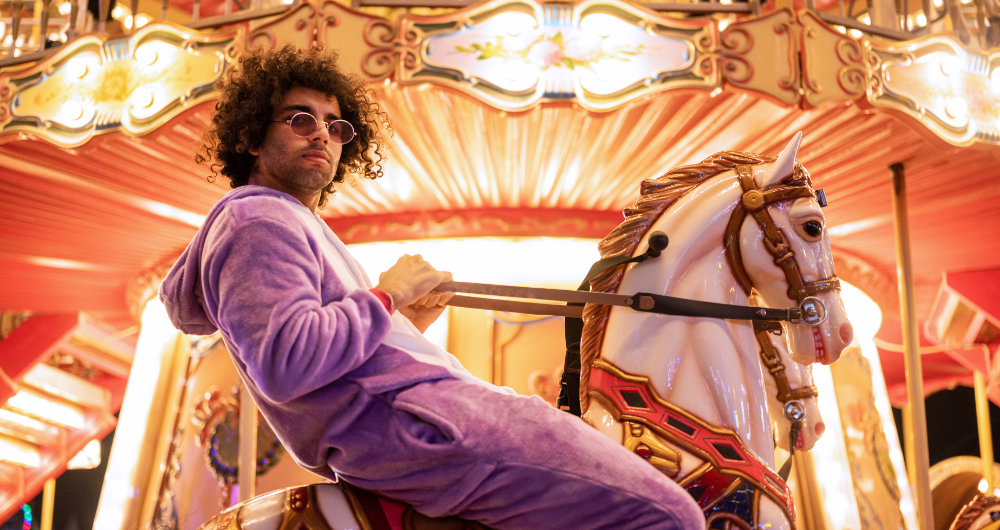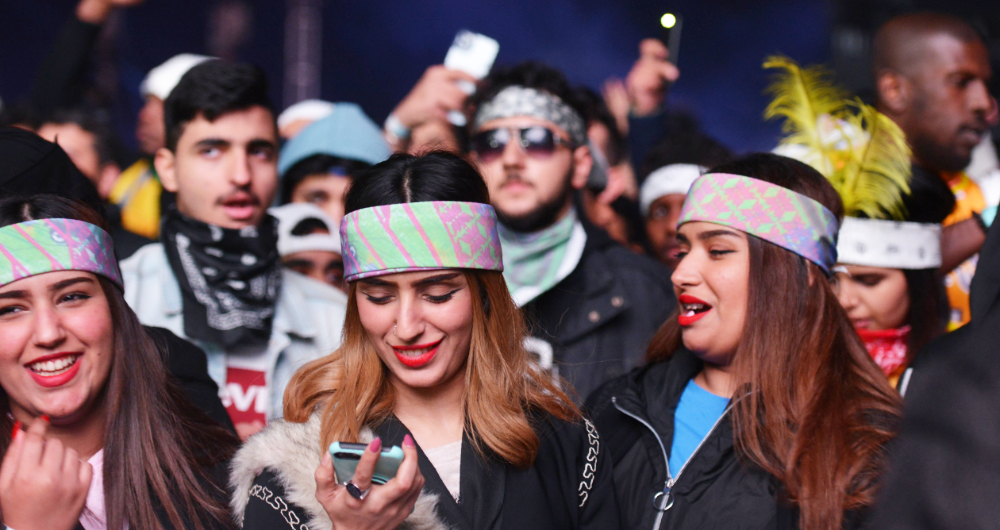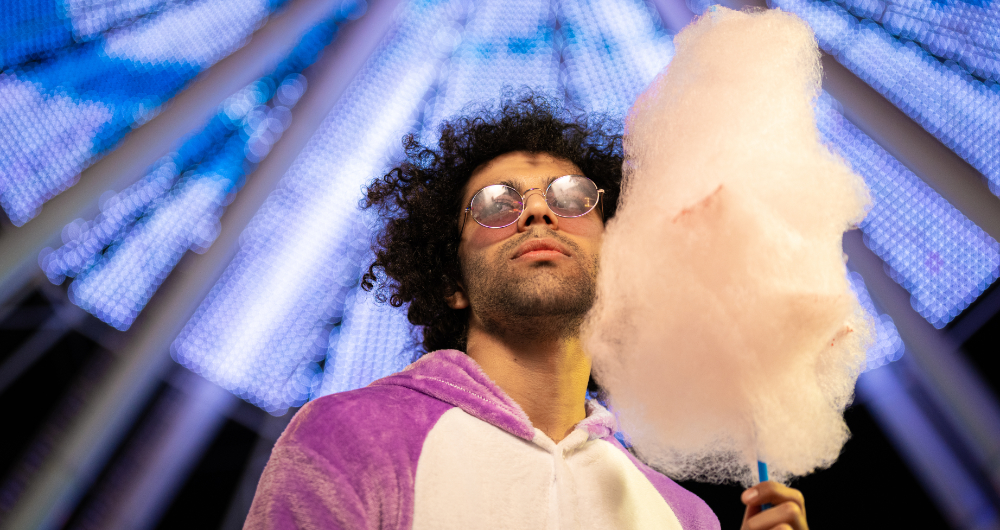DUBAI: The career trajectory of Jeddah-born rap artist Molham has much in common with his native Saudi Arabia, a country undergoing rapid change in different fields. Both take pride in their unique identity, having embraced the best influences of globalization and its cultural mores while preserving the distinctive textures of Middle Eastern heritage.
For Molham, the process of synthesis does not end here. His musical alchemy fuses Arabic and Khaleeji rap with Western pop melodies, creating a whole new sub-genre of music, a sound best defined by his latest track Khayali.
“Pop/rap is going to be my direction moving forward, because rap has been relatively underground in the last two decades and mainstream radio music is very melodic,” Molham told Arab News from his base in Dubai. “You can sing along to the lyrics, memorize them easily, and the melody there is really what hooks you.”
Molham’s diverse taste in music speaks to a global upbringing since childhood. Leaving Jeddah at a young age, he spent much of his early years in Ontario, Canada. “They were my formative years,” he said. “Coming back to Saudi Arabia, I had a bit of reverse culture shock getting back here. It took about a year or so before I felt integrated really well. Then I spent most of my time here.”

Molham’s musical alchemy fuses Arabic and Khaleeji rap with Western pop melodies. (Supplied)
His discovery of music can be traced back to his high school days, when he would jot down lyrics during math class. While on breaks, he would join rap contests with his peers. Fortunately, his grades did not suffer as a result.
“Sometimes during math class, in the last couple of minutes, the teacher knew I would be writing raps, so he would end early and have me do my bit,” he said. “And the whole class would run wild. It was a conducive environment.”
Next came a move to the US, where he attended Georgetown University to study finance and economics. While there, he performed in coffee shops, talent shows and radio stations as part of a duo called 705B. It was also while here that Molham came to understand the complexities of the music industry.
After graduation, he relocated to Dubai and began plotting a course to professional fulfilment and success.
“Before, I never really saw a music career as a possibility,” he said. “As I dug deeper into what I wanted my impact in this world to be, I saw myself as an artist creating music (for) the Saudi Arabian community.”
From his very first performance, Molham knew he had made the right choice. “My first time performing publicly on stage was in Saudi Arabia,” Molham said. “That was the first time I felt the adrenaline of what it felt like to perform. The most gratifying element for me in music is performing, being with fans and having people sing along.”

Molham says Saudi Arabia and the other Gulf countries should recognize the value of sharing a distinctive musical style with the outside world. (AFP)
Today, Saudi Arabia feels extremely friendly to concertgoers and welcoming to artists like Molham. Big music festivals such as MDL Beast and a whole new industry of studios and promoters have provided the ecosystem and the fan base he needed to launch his career.
“People began to understand my art, and that led to me wanting to give more,” he told Arab News.
Molham says he feels a close affinity with his fans and recalls the time a fan messaged him from hospital where she was recovering from PTSD. She told him his songs had helped her recuperate.
“When I hear things like that, it’s all worth it,” he said. “Seeing people’s responses and enjoyment of the music really is fuel to continue to put out music. It’s all about connecting with people.”
Molham explores a range of themes in his lyrics, from love to societal matters to mental-health disorders, broadening his appeal with a blend of English and Arabic. He launched his debut EP, The Time Is Yesterday, in March of 2018, with features from Egyptian starlet Malak El-Husseiny and Yusra J.

“My parents have always trusted me to do the things that I wanted to do,” says Molham. (Supplied)
The medium-length album’s breakout single, Me Against the World, hit the top hip-hop charts in the Middle East and North Africa, trending across seven different countries. New singles are already in the works.
Molham says his family has supported the choices he has made in life. “My parents have always trusted me to do the things that I wanted to do,” he said.
“It’s been really incredible. Obviously, they have their opinions on certain things. But since I was a kid, I’ve been able to do what I say because I’ve built that trust with them to be able to say something and actually do it.”
Looking to the future, he plans to shuttle between Saudi Arabia and Dubai for performances and collaborations. Although the coronavirus crisis has put a break on his travels and concerts for a time, he says it has enabled him to stay focused and further channel his creativity toward music.

Today, Saudi Arabia feels extremely friendly to concertgoers and welcoming to artists like Molham. (AFP)
Molham remains optimistic despite the blows dealt by the pandemic to the global cultural industry. “We’re prepared,” he said. “The future in the Kingdom is very bright. There is a lot of opportunity in Saudi Arabia and more nurturing of talent, so talents will mature earlier. We will see a lot of superstars.”
Citing the example of K-Pop, which became a defining image for South Korea, Molham says Saudi Arabia and the other Gulf countries should recognize the value of sharing a distinctive musical style with the outside world.
“There’s a space for this genre, which I’m trying to mold and shed light on,” Molham said. “I am creating this new genre called A-pop.”
Saudi Arabia’s cultural revitalization is underway at full pelt but it is early days yet, so rap artists such as Molham remain a rare breed. Which leads to the inevitable question: What reception does he get when foreigners realize he is Saudi?
“There is still a little bit of surprise, but people are pleasantly surprised,” Molham said. “It’s something new to the mainstream. With anything new, people will be surprised. But how you introduce this newness is where the key is. You show people what you have to offer, and you make space for them to appreciate it.”
Twitter: @CalineMalek





























